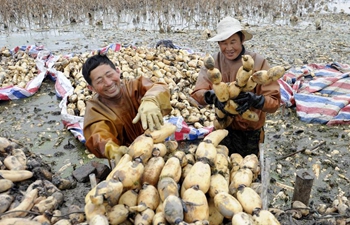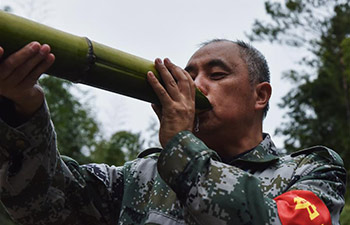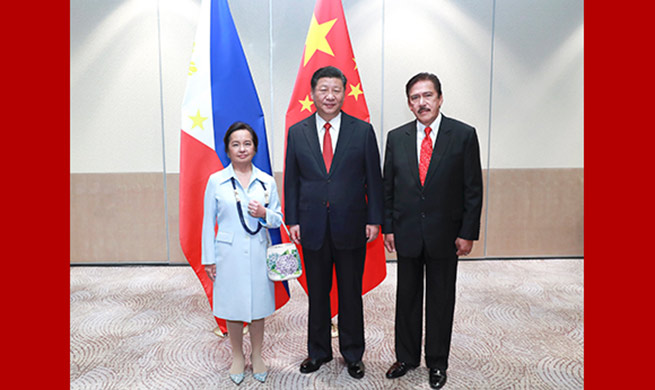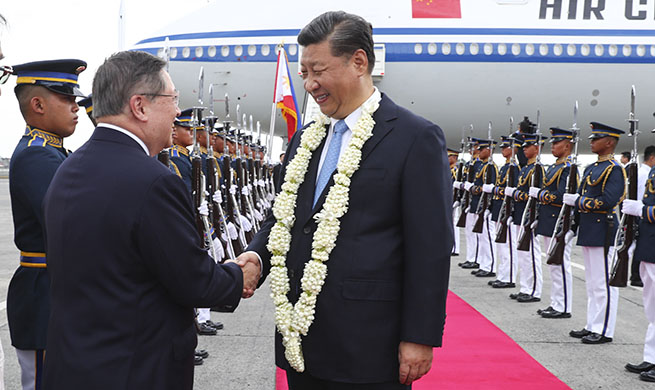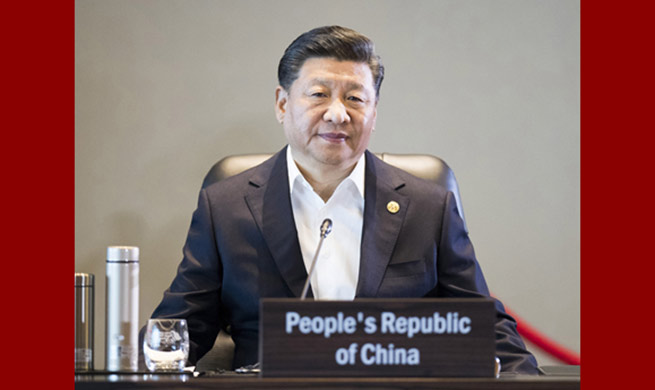XI'AN, Nov. 21 (Xinhua) -- In the remote mountains in northwest China's Shaanxi Province, musk deer breeding has sprang up over the past few years and is expected to lift local impoverished residents out of poverty.
The Qinling Mountains and Daba Mountains are the main habitat of wild forest musk deer, which are known for their musk, a kind of aromatic substance commonly used in perfumes across the world and widely used in traditional herbal medicine in China.
People living in these mountainous regions have long suffered a backward transport infrastructure and poverty.
As one of the most valuable natural substances in the world, musk has been called "soft gold." Listed as a national protected species, wild musk deer are not allowed to be hunted or captured in China. Obtaining musk from artificial breeding musk deer is the only legitimate access allowed in the country.
"Glandular secretions collected from male deer are important materials in traditional Chinese medicine (TCM), as nearly 300 kinds of TCM use musk. Many famous international perfume makers also use musk as a fixative in perfume," said Wang Wanyun, director of the forest musk deer protection and breeding center in Shaanxi.
"China started musk deer domestication trials in 1958. Musk deer breeding techniques have seen great improvements due to 60 years of effort. Chinese farmers have mastered the skills of extracting musk from male deer without harming them."
Thanks to the development of artificial breeding techniques, musk deer farming has slowly developed in China, while a growing number of rural residents have benefited from the thriving industry.
As of 2017, there were more than 20,000 musk deer being bred in captivity in China, producing around 150 kg of musk in one year. While in Shaanxi, 14,000 musk deer produced 100 kg of musk last year, according to Wang.
In the face of high demand from the fragrance industry, governments in poverty-stricken counties in Shaanxi consider musk deer breeding a promising industry. They have made great efforts to develop the industry and encouraged more locals to participate.
"A male deer can produce around 15 grams of musk per year, and each gram is about 400 yuan (58 U.S. dollars). The rising industry can help residents cast off poverty in the short term," said Feng Shiliang, chairman of Huayuan Breeding Ltd. in Fengxian County.
"With the support of local governments, more and more poor people have begun to raise musk deer, seizing the opportunity to earn more and live better lives."
Since the cost of musk deer farming is relatively expensive, local governments encourage residents to take part in the industry through supplying forage and working for musk deer breeding companies.
More than 500 impoverished households in Fengxian County are expected to escape poverty this way in 2018.
Peng Zhong, a villager in Simudi Village in Ningshan County, said his county began to develop musk deer breeding in 2014, and many villagers have participated in a musk deer breeding cooperative.
Peng's parents have suffered prolonged illness, and his family is impoverished due to illness-related expenses. Without enough money to raise musk deer, Peng offered his land to a musk deer breeding cooperative and works for the cooperative.
"I can get a steady income by renting the land and working for the cooperative. I'm planning to build a barn to raise musk deer in the future, so I can easily earn 10,000 yuan every year," Peng said.
"The scale of the industry is expanding and the industrial chain has taken shape, and the musk deer breeding industry in Shaanxi is expected to play an important role in poverty relief," said Lu Yijian, director of the forestry administration of Ningshan County.




